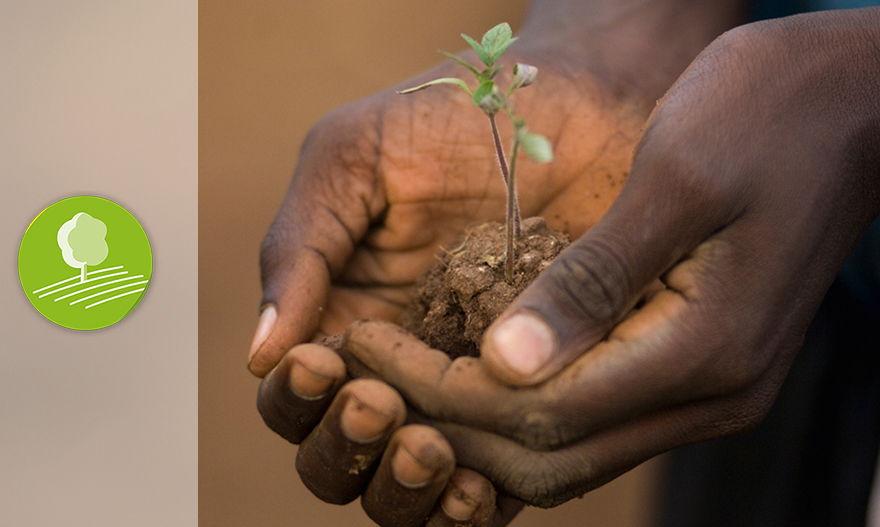
Introduction to Organic agriculture
Estimated duration : 30 min
The course offers an introduction to the basic principles of organic agriculture through various interactive and entertaining activities.

Organic agriculture (Intermediate level)
Estimated duration : 11h30
Following a short history and a description of the various agricultural systems used in organic agriculture, we shall introduce this course by presenting the four main principles of organic agriculture.
The course will then situate the links between the various existing organic agriculture regulations and international and private standards. The course will then focus more especially on the soil, its characteristics and its importance as a production factor. We shall see how to prevent it from being degraded and contaminated by miscellaneous pollutants.
The focus will also be on the importance and role of organic matter and humus in the soil. The course will review the various types of fertiliser and organic soil conditioners available locally. Lastly, the course will cover the approach for a farm wishing to convert from conventional to organic agriculture.
We shall see that conversion strategies are necessary to achieve this objective and that the producer has to acquire new knowledge and additional skills for it to be successful.

Organic agriculture (Advanced level)
Estimated duration : 11h30
The course will start by presenting the elements that explain soil fertility and will dwell on the origin, composition and functions of the organic matter in the soil. It will then review the impacts of agriculture practices, including pollution and water consumption. The 'water-footprint' concept will be addressed briefly.
We shall then address the definition of biodiversity and the ecosystem services it renders. Integrated pest and disease management will be presented during the course as an example of the optimum use of biodiversity services, also known as Eco-Functional Intensification.
The course will describe a set of appropriate preventive or curative protection methods for plants. Special attention will be paid to biological, physical and mechanical control methods. We shall see that, contrary to conventional wisdom, weeds can offer many advantages.
The course will explain how an organic farmer with a good strategy can minimise the negative aspects of weeds and promote their advantages for the productivity of the agricultural system (by preventing soil erosion, fixing the nitrogen, storing nutrients, sheltering beneficial insects and providing carbon).
The final part of the course will concentrate on presenting principles related to breeding varieties that are adapted to organic agriculture and the difference between hybrid and open-pollinated varieties.

